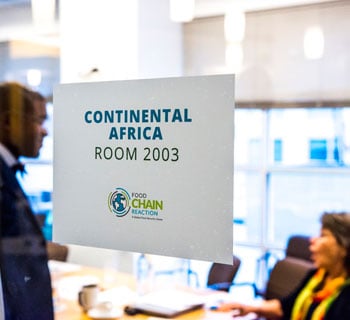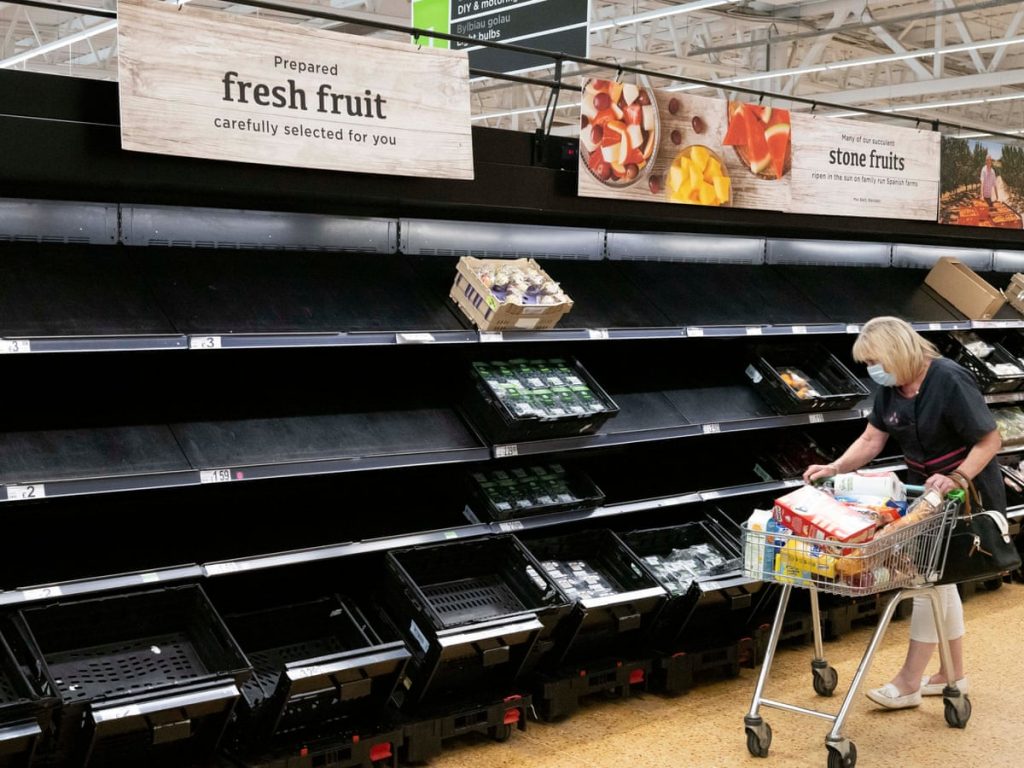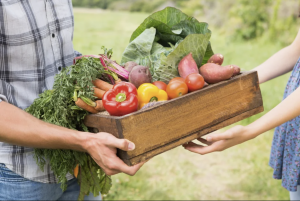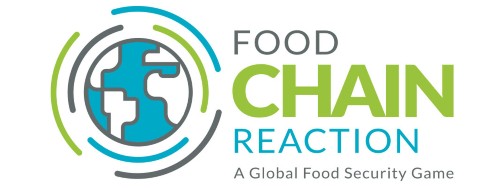And you know how those "exercises" (like the multiple war games that just happened to coincide with the catastrophic, catalyzing events of 9/11) not only anticipated our current predicament, but, more importantly, laid the groundwork for the current global governmental response to the scamdemic—the creation of vaccine passports, the erection of the biosecurity grid, the crackdown on the "infodemic" of online "disinformation," etc.?
Now, what if I were to tell you that there have been a number of simulations that have taken place in recent years that have similarly spelled out the globalists' game plan for the post-scamdemic world in black-and-white?
Well, brace yourself. The global planners have been crafting simulations, war games and exercises to simulate our responses to the crises they are intending to create in the coming decade. And, as serious as all of the above-named simulations were, these ones foretell of an even darker vision for humanity in the years to come. . . .
The Players Set the Stage

In November of 2015—as you can learn from an official press release on the Cargill website—"65 international policymakers, academics, business and thought leaders gathered at the World Wildlife Fund’s headquarters in Washington DC to game out how the world would respond to a future food crisis." Over the course of two days, the participants in this "Food Chain Reaction" crisis simulation role played a response to a number of converging and overlapping crises in the 2020s, including "two major food crises, with prices approaching 400 percent of the long term average; a raft of climate-related extreme weather events; governments toppling in Pakistan and Ukraine; and famine and refugee crises in Bangladesh, Myanmar, Chad and Sudan."
Among the expected corporate platitudes and blather about "staying ahead of the curve" in order to "get it right," the World Wildlife Fund highlights the key takeaway from this exercise: "Only by stopping agricultural expansion, augmenting agricultural production, increasing resource-use efficiency, and reducing food waste, can we provide the food and nourishment we need, while ensuring we are conserving nature for future generations."
I'll let you stew on the implications of that statement on your own time, but the game—which, we are assured, "was built over the course of months, with maximal realism in mind"—went on to envision some very specific scenarios that look like they are on track to becoming stone cold reality, like "a steep price spike with looming global food shortages in 2022" that prompted the EU players to impose a tax on meat. But here's the kicker: this "game" ended with the imposition of a global carbon tax.
Oh yes, the global controllers can't go three minutes without invoking their favourite bogeyman, the Climate Scare, to impose greater control over humanity, and this "war game" only proved that rule. In this case John "Pizzagate" Podesta, as one of the "Key Players and Game Control Staff" steering the exercise, helped guide the gaggle of globalist gophers—including representatives from multilateral institutions like the World Bank, the International Finance Corporation and the United Nations Environment Program, as well as industry executives from companies like Louis Dreyfus Commodities, MARS, Inc. and Thomson Reuters—toward the pre-ordained conclusion that the only way to placate the weather gods would be to institute a global tax.
If all of this seems familiar, that's because it is. In fact, the whole sordid Food Chain Reaction scenario only mirrors other recent "simulations" and "scenarios" from the global jet set crowd, including the Rockefeller Foundation's "Reset The Table" report calling for the consolidation of globalist control of the global food supply and the ChiCom's "Clean Your Plate Campaign," which aims to bring technocratic management of the economy into every citizens' dining room by monitoring and punishing "food wastage" and more tightly controlling food production processes.
All of these initiatives (and many more like them) are all aiming in the same direction: to use perceived crises (whether real or fake, genuine or generated) to "transform" the global food supply from farm to fork, eliminating small farmers in favour of global agribusiness and transitioning us into a world where the only dining options available are GMOs, bugs, lab-grown "meat" and other frankenfoods.
And the worst part is that the "food crises" that these "simulations" have long envisioned are quickly becoming a reality.
The Game Plan Comes to Life

As Christian "Ice Age Farmer" Westbrook reveals in his latest podcast, the Food Chain Reaction "simulation" wasn't just some far-fledged vision of a possible future dystopia. In fact, if you've been following the headlines, it is increasingly looking like another of those globalist "exercises" that just happen to become reality.
As I write, soaring natural gas prices are resulting in a nitrogen fertilizer shortage, which in turn is helping to fuel food price inflation. This has led Russia to impose nitrogen fertilizer export quotas, exacerbating problems in the agricultural sector, which is already reeling from China's September decision to halt all exports of phosphate, another key ingredient of commercial fertilizers. The pinch is already being felt by farmers around the world, with the Brazilian Agriculture and Land Reform Commission taking up the issue as a major food security threat and the Indian Air Force helping to secure fertilizer shipments to Sri Lanka.
But that's not all. The stories of woe are coming from farmers all across the globe as the world plunges into an unprecedented series of food crises.
Historic droughts have hit California growers hard even as the container ship backlog is leaving farmers struggling to export what little they have managed to harvest. In Canada, a shakeup at one of the country's main rail carriers have left farmers wondering if they'll be able to ship their grain as usual this year. Two cases of mad cow disease in Brazil prompted China to halt Brazilian meat imports and Brazil, in return, has partially halted beef production. And a new round of virtual false flag threats on American agribusiness have US Senators on edge about the possible national security implications of cyber attacks.
Yes, once the pieces of this puzzle are put together, there can be no doubt that we are entering into a generated food crisis exactly like the Food Chain Reaction "predicted" for this all-important 2020—2030 period. And it's about to get even worse.
Exactly on schedule (and exactly as the Food Chain Reaction game envisioned), farmers are now being asked to start cutting carbon emissions to meet the globalists' "net zero" (or is that "absolute zero"?) goals for the 2030 Agenda. The extra financial burden on the agricultural sector that comes with implementing these (meaningless) measures couldn't come at a worse time for a sector already in full-blown crisis . . . unless the global controllers are looking to exacerbate that crisis, of course.
There is no doubt that a global food crisis is upon us. People are already starting to feel the pinch of that crisis at the checkout as food price inflation kicks in, but if things continue along this path it's going to get a whole lot worse. So what can be done about this?
What Must Be Done

This is not rocket science. The plans of the Food Chain Reaction schemers and their ilk rely on us being dependent on their global food supply system and the supermarkets that distribute those foods, so anything that can be done to increase your independence from that system is a point in your favour.
This starts with each family taking it upon themselves to prepare for a period of sustained food shortages and rising food prices. The old prepper verities about preparing for a food crisis apply here:
- Make an inventory of what you have.
- Draft up a realistic "food budget" for your family to determine what you need on a weekly/monthly basis.
- Learn what is available directly from growers in your local area and establish relationships with them now.
- Prepare a clean water source and/or water purifier system.
- Prepare a short-term supply of basic non-perishable foods.
- Prepare a long-term supply of wheat, rice, beans, oats, pasta and other staple foods that can be safely preserved for long periods of time.
These tips are a good start, but the real solution to this crisis cannot end there. Although we can increase our independence from the global(ist) food supply by these methods, we cannot achieve true independence until we have built up the alternative food economy.
I have pointed out many ways to do this in my work over the years. I've talked to experts about urban gardening and choosing chickens. I've explored the art of guerilla gardening. I've discussed victory gardens. I've talked about tools for finding and sourcing local growers and free food and I've introduced you to REKO Rings, Farm Shares and Farmer Bazaar. These are good resources to get you started, but there's much more to be said along these lines so I'll be continuing to cover these topics on #SolutionsWatch in the future.
But solutions like these are only as good as our commitment to them, and our commitment to these solutions depends on us understanding their importance. The would-be rulers of the world have already told you their plans. We know the food crunch is coming and we also know that without food sovereignty there is no real sovereignty.
The time for sitting on the sidelines is over. It's time to roll up your sleeves and get to work ensuring your family isn't dependent on the supermarket shelves being stocked.
Author
An award-winning investigative journalist, James Corbett has lectured on geopolitics at the University of Groningen's Studium Generale, and delivered presentations on open source journalism at The French Institute for Research in Computer Science and Automation's fOSSa conference, at TedXGroningen and at Ritsumeikan University in Kyoto.
He started The Corbett Report website in 2007 as an outlet for independent critical analysis of politics, society, history, and economics. Since then he has written, recorded and edited thousands of hours of audio and video media for the website, including a podcast and several regular online video series.
TLA recommends Corbett's site for excellent analysis of most global issues excepting climate and China where his substantiation appears quite thin. ~ Ed.
![]() Don't forget to feed the birds. Please donate here
Don't forget to feed the birds. Please donate here


